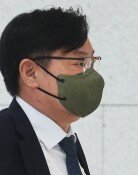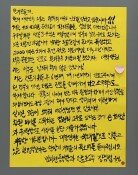'U.S. will use considerable military force,' warns the U.S.
'U.S. will use considerable military force,' warns the U.S.
Posted July. 07, 2017 07:09,
Updated July. 07, 2017 07:37
At a Wednesday (local time) U.N. Security Council meeting urgently convened to discuss the recent launch of an Intercontinental Ballistic Missile (ICBM) by North Korea, U.S. Ambassador to United Nations Nikki Haley pressured North Korea saying, "One of our capabilities lies with our considerable military forces. We will use them if we must." On China backing the North, she also warned China, by saying, "Bilateral trade between the U.S. and China will falter when Beijing's trade to Pyongyang violates U.N. sanctions."
Haley poured out strong remarks lasting over six minutes as the first speaker at the emergency meeting, which was held for over 80 minutes. On the missile launched by Pyongyang, Haley severely condemned North Korea, saying, "It was not only dangerous, but reckless and irresponsible. The United States is prepared to use the full range of our capabilities to defend ourselves and our allies."
Haley said, "We prefer not to have to go in that direction," but added that the U.S. will review trade restriction. "Nations willing to trade with North Korea in violation of the U.N. Security Council resolutions will no longer secure business with the U.S.," she said.
Nations including Japan, England, France expressed their support when Haley said, "We will bring before the Security Council a resolution that raises the international response in a way that is proportionate to North Korea's new escalation." South Korean Ambassador to the U.N. Cho Tae-yeol also supported by saying, "We stand by the U.S. on adopting the new resolution on North Korea."
Still, China and Russia continued to repeat theoretical policies that political and diplomatic solutions can be made through dialogues. Chinese Ambassador to the U.N Liu Jieyi made themselves clear, saying, "Military means is not an option." Russian deputy envoy to the U.N. Vladimir Safronkov also turned down the proposal, saying, "Restrictions cannot be the key to solve such issues."
Yong Park parky@donga.com
Headline News
- Med professors announce intention to leave hospitals starting Thursday
- Bridge honoring Sgt. Moon Jae-sik unveiled in Pennsylvania
- Chief of Staff Chung tells presidential secretaries to stay away from politics
- US FTC bans noncompete agreements
- N. Korea launches cyberattacks on S. Korea's defense companies







